Mozambique: Dismissed Vilankulo teachers appeal to the Inhambane Administrative Tribunal
Terrorism in Cabo Delgado: “This conflict has no way out through military means only”
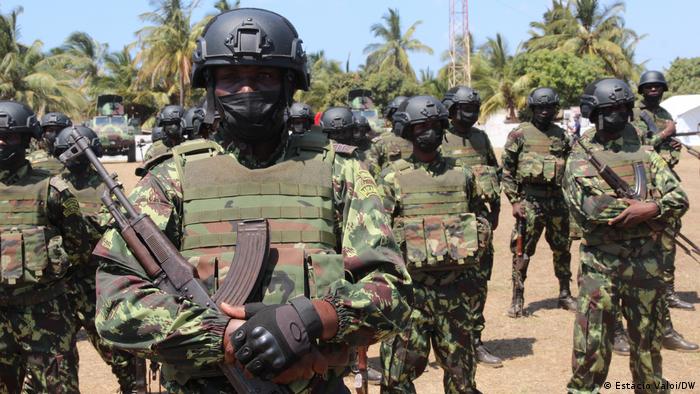
FILE - For illustration purposes only. [File photo: DW]
How can the conflict in the Mozambican province of Cabo Delgado be brought to an end, five years after the first attacks? Researcher Borges Nhamirre says that the troops must remain on the ground, but it is also necessary to talk.
Exactly five years ago, when the first attacks by an unknown armed group targeted three police posts in the village of Mocímboa da Praia, in northern Mozambique, a new chapter in the country’s history began.
The north of Mozambique is rich in natural resources, such as gas. But extraction projects had to stop as the terrorists advanced. The attacks led to the flight of about a million people, according to the latest figures from the United Nations High Commissioner for Refugees (UNHCR), and an estimated 4,000 people have been killed.
More than a year ago, forces from Rwanda and the Southern African Development Community (SADC) joined the Mozambican Army in fighting terrorists and began to liberate occupied territory. But recently there has been a new wave of attacks in other areas.

In an interview with DW, Mozambican researcher Borges Nhamirre, from the Centre for Public Integrity (CIP), says that it is necessary to continue to support military actions to contain the terrorist threat. He calls, however, for the opening of a channel of dialogue with the insurgents.
“It is important that we learn from our history how to end this conflict in Cabo Delgado,” says Nhamirre. “After 16 brutal years of [civil] war, it was only when there was dialogue that we achieved peace.”
DW Africa: After five years of attacks in northern Mozambique, how do you view the terrorist threat in the north of the country?
Borges Nhamirre (BN): The threat is still very great, it remains very present – both for the government and allied forces in Cabo Delgado fighting terrorism, and for the inhabitants of Cabo Delgado and now of Nampula.
DW Africa: Mozambican Defence Minister Cristóvão Chume said on Monday, following the attacks in Nampula, that there is no spread of the conflict in the north of the country. How do you understand this new executive positioning?
BN: Since the beginning [of the conflict], the government has tried to play down the attacks in Cabo Delgado. People still remember that, initially, the government even denied that there was terrorism in the province, insisting that these were attacks by criminals. But minimising the conflict contributes to its spread.
DW Africa: Do you believe that the attempt to down-play this issue has to do with the gas interests? In other words, is the government trying to give the impression that things are normal when this is not the case?
BN: I think so, that it’s an attempt to show investors that the problem is smaller [than it really is]. But not only that, perhaps it is above all an effort to try to say that the situation is the same throughout the province of Cabo Delgado, something that is not true. At the moment, there are more attacks in areas far from the gas projects. The districts of Palma and Mocimboa da Praia are relatively safer, and this is the result of the government’s approach to warding off attacks in the region where there are very important resources for the country’s economic development. So, I believe that the government is trying to hide the fact that there is a region more prone to attacks, starting in Macomia, than in Palma or Mocímboa da Praia, where the situation is calmer.
DW Africa: What is your assessment of the military operation to combat terrorism in northern Mozambique?
BN: The intervention of forces from other African countries was important in reducing the number and intensity of attacks and for the so-called “balance of power” between the two parties – before the arrival of foreign troops, the insurgents had a lot of power. But no military conflict of this nature is resolved with the power of arms alone. So a government approach including dialogue with the attackers – something that did not happen – would have been helpful.
DW Africa: How can this problem be solved?
BN: It is important that, while supporting military actions to reduce the power of insurgents, there is also an approach towards dialogue. It is necessary to find a way out other than by military means. This conflict has no solution through military means. After 16 brutal years of [civil] war, in which Renamo was called a “terrorist”, it was only when there was dialogue that we achieved peace. It is important that we learn from our history how to end the conflict in Cabo Delgado, and not wait another 16 years.


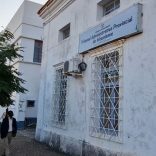
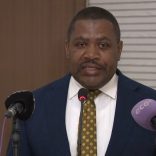


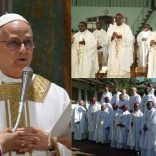
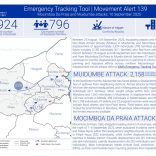




Leave a Reply
Be the First to Comment!
You must be logged in to post a comment.
You must be logged in to post a comment.